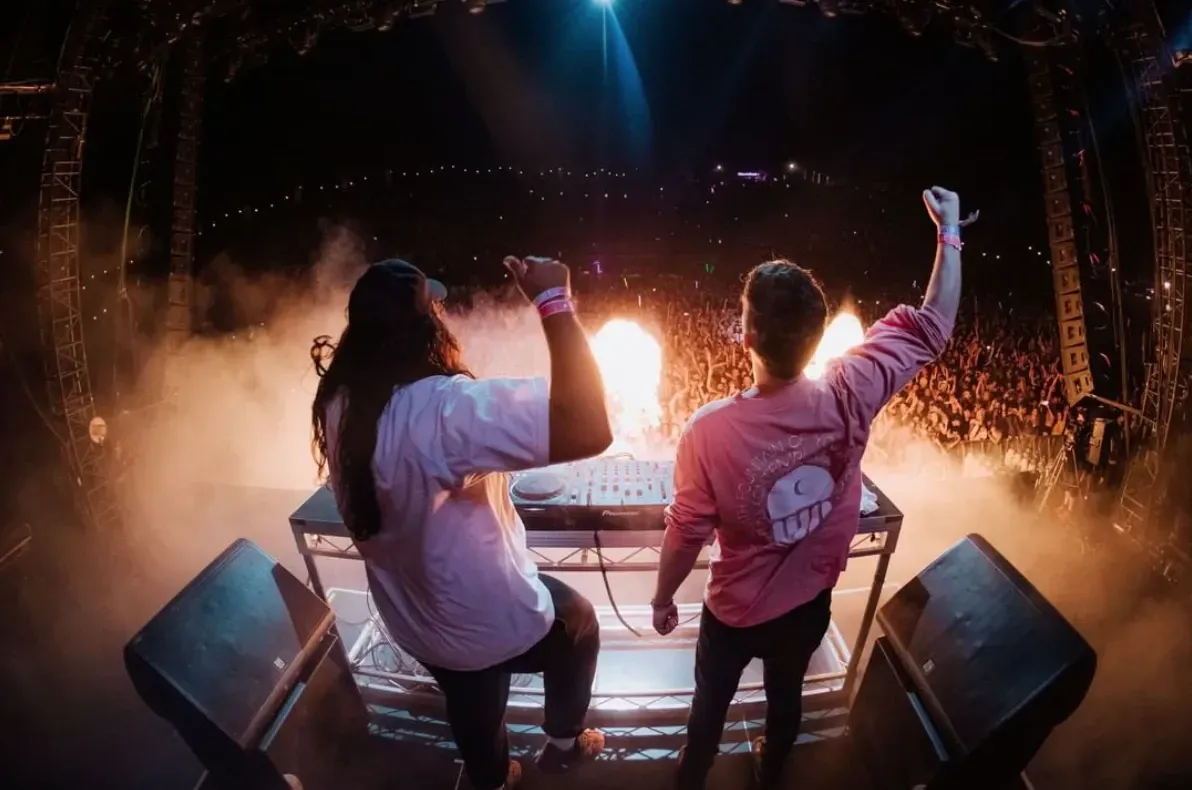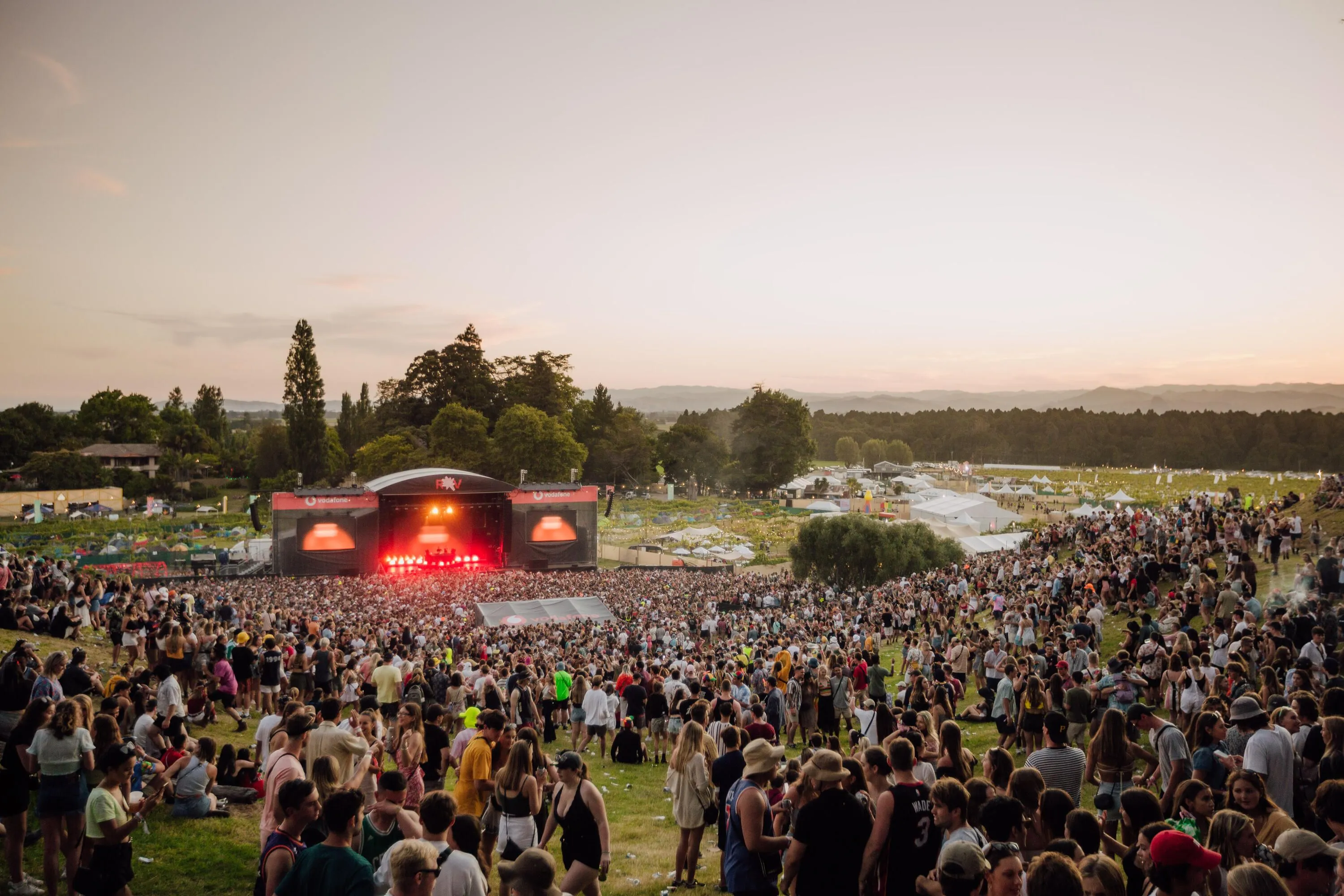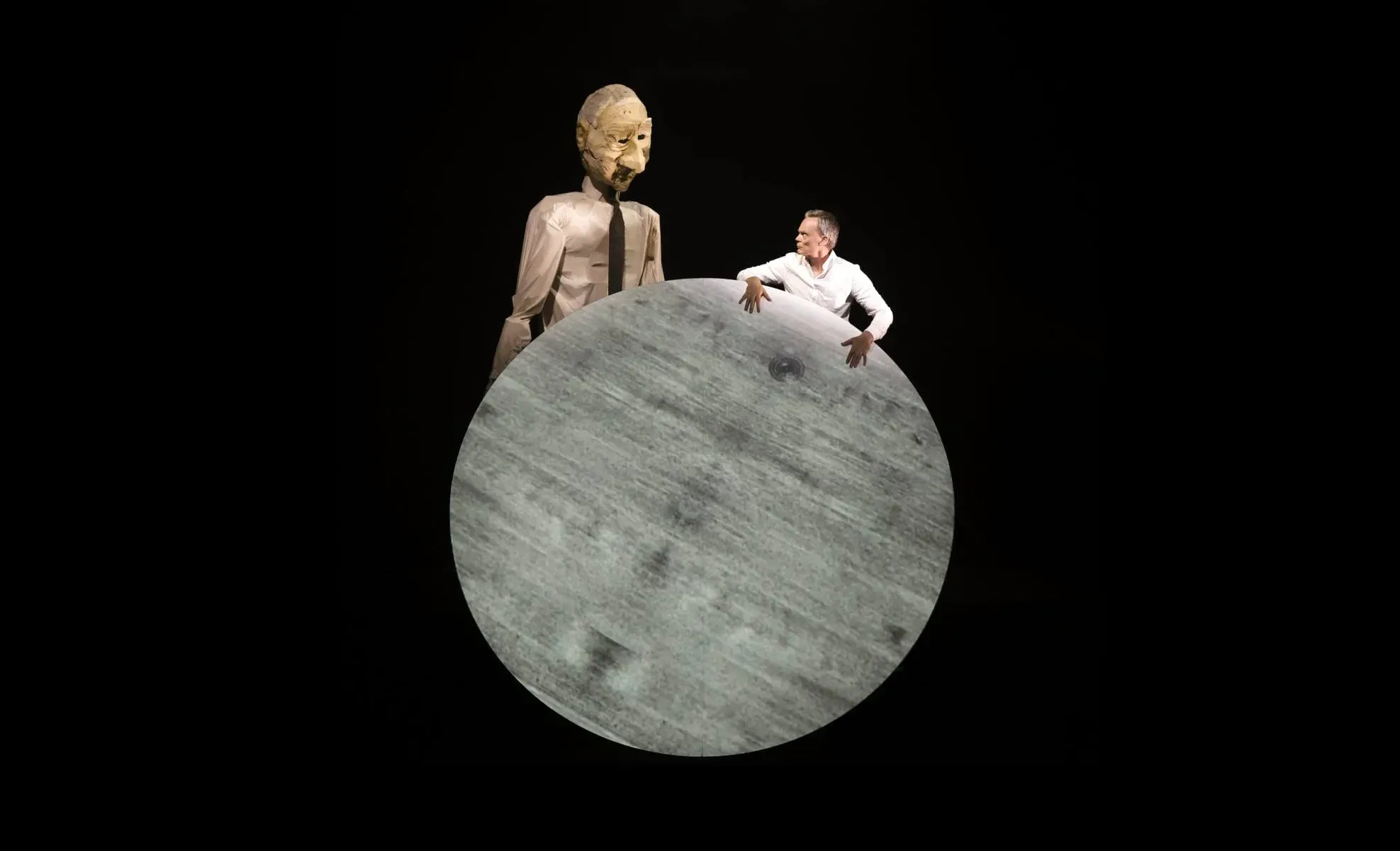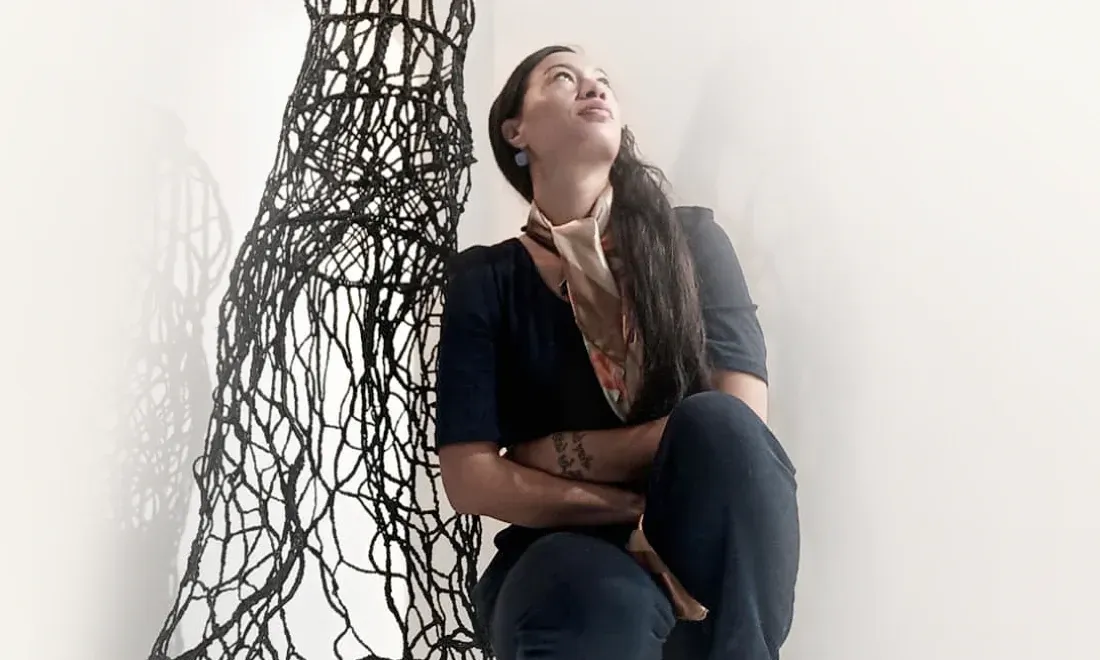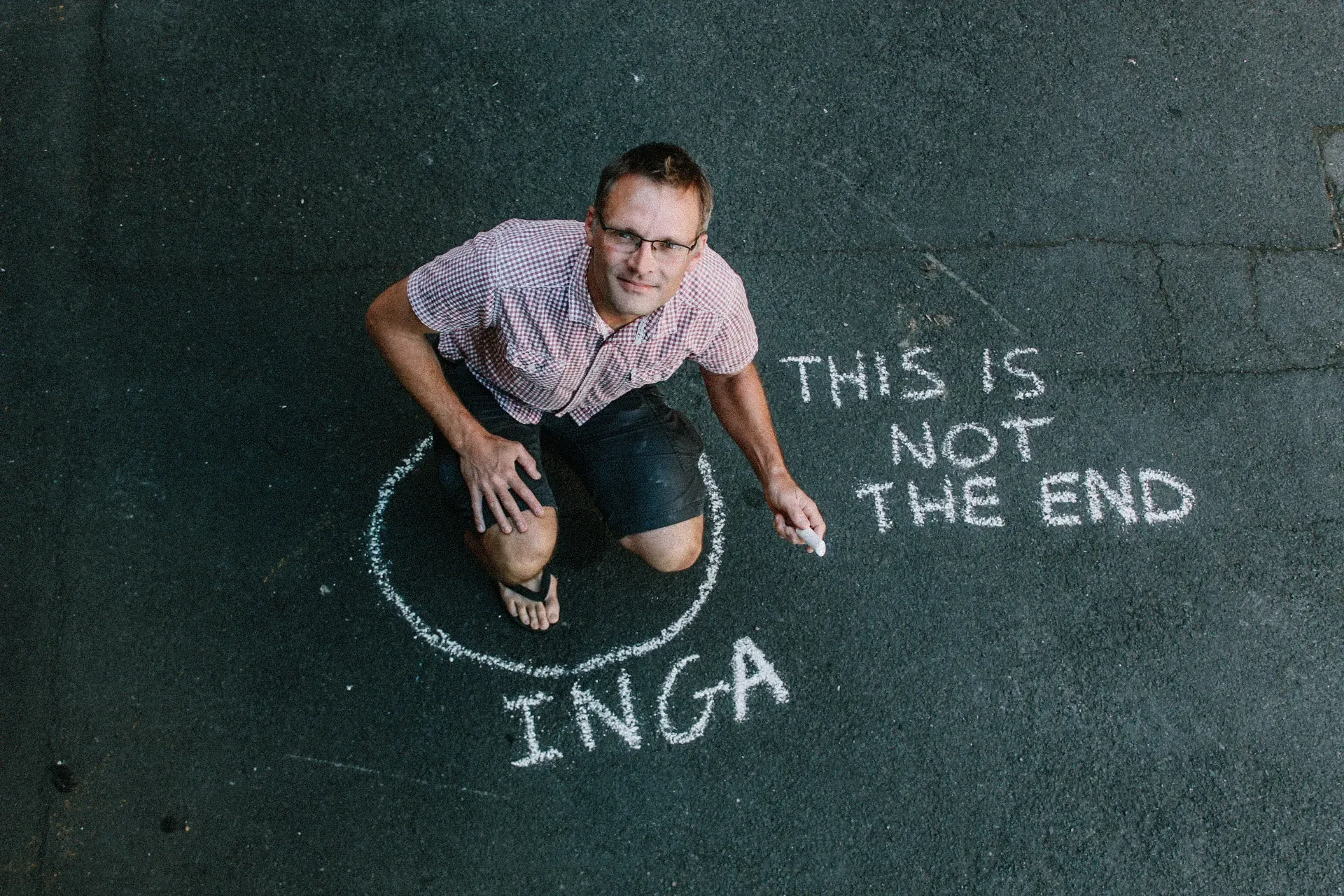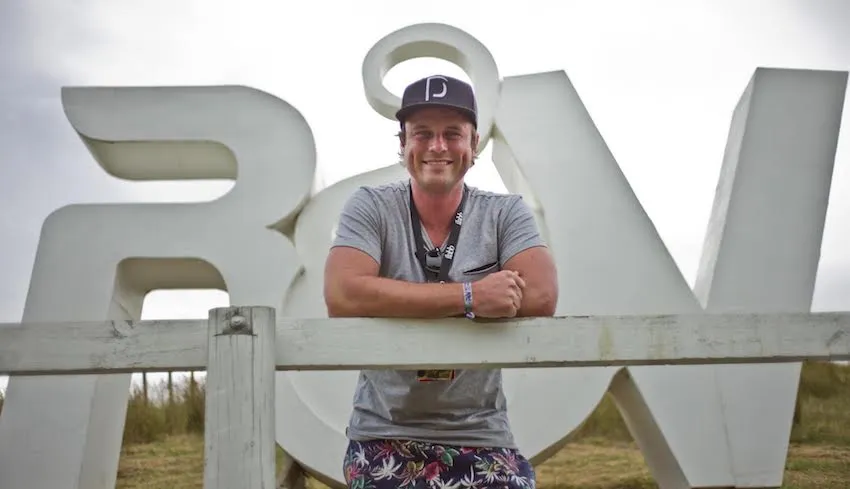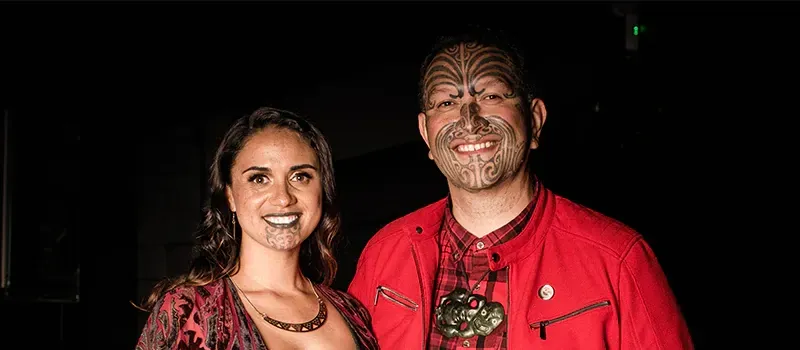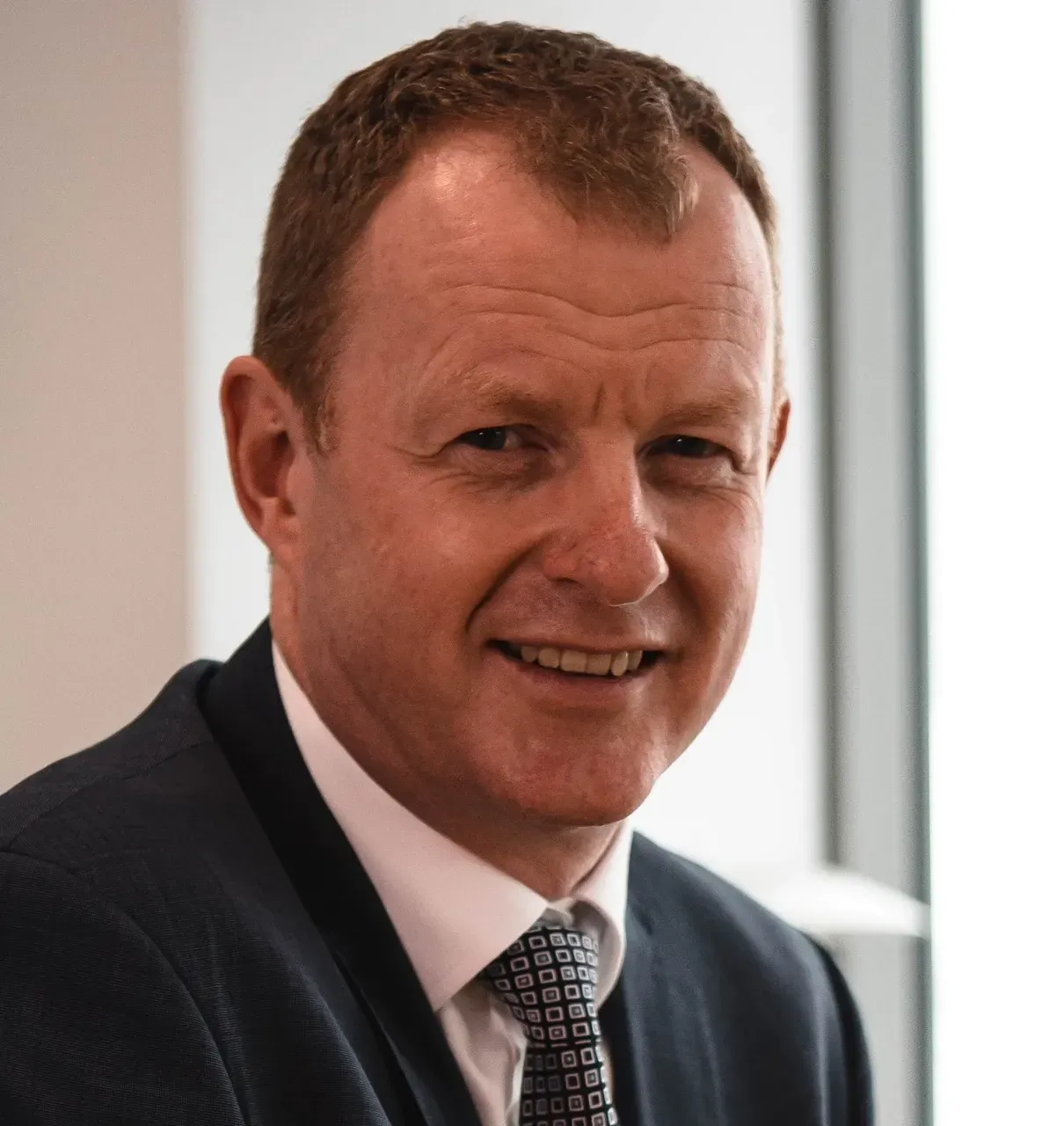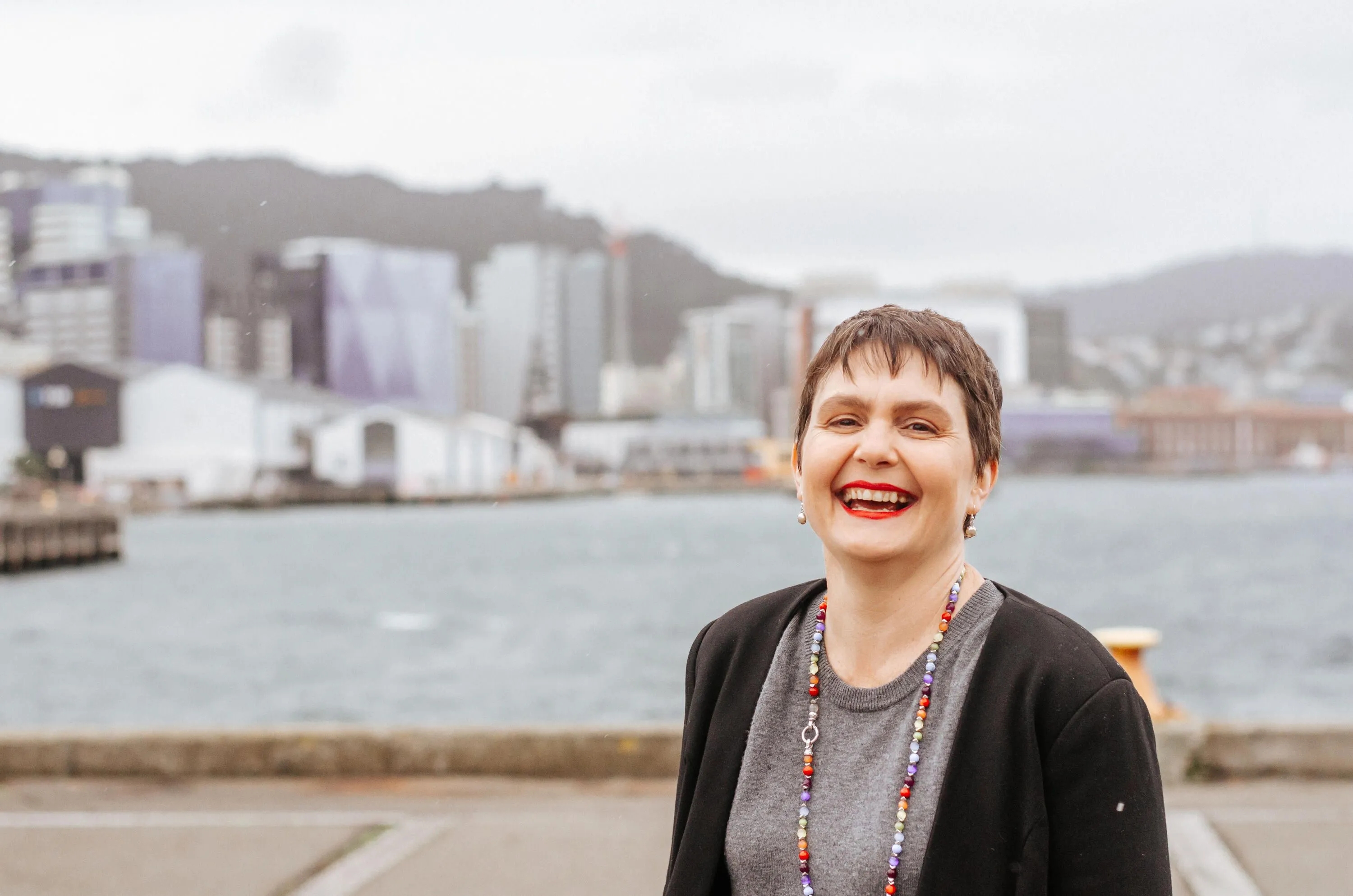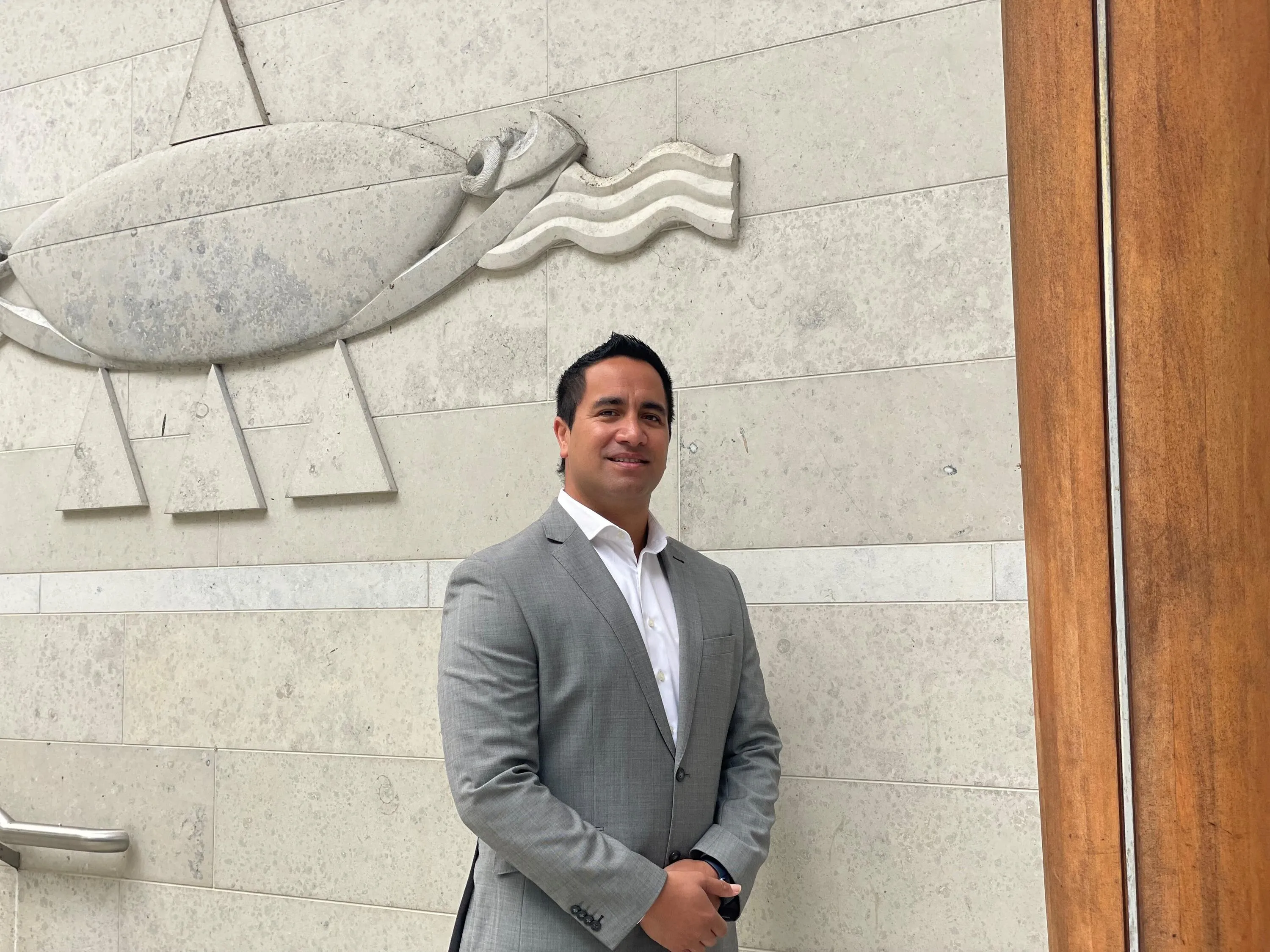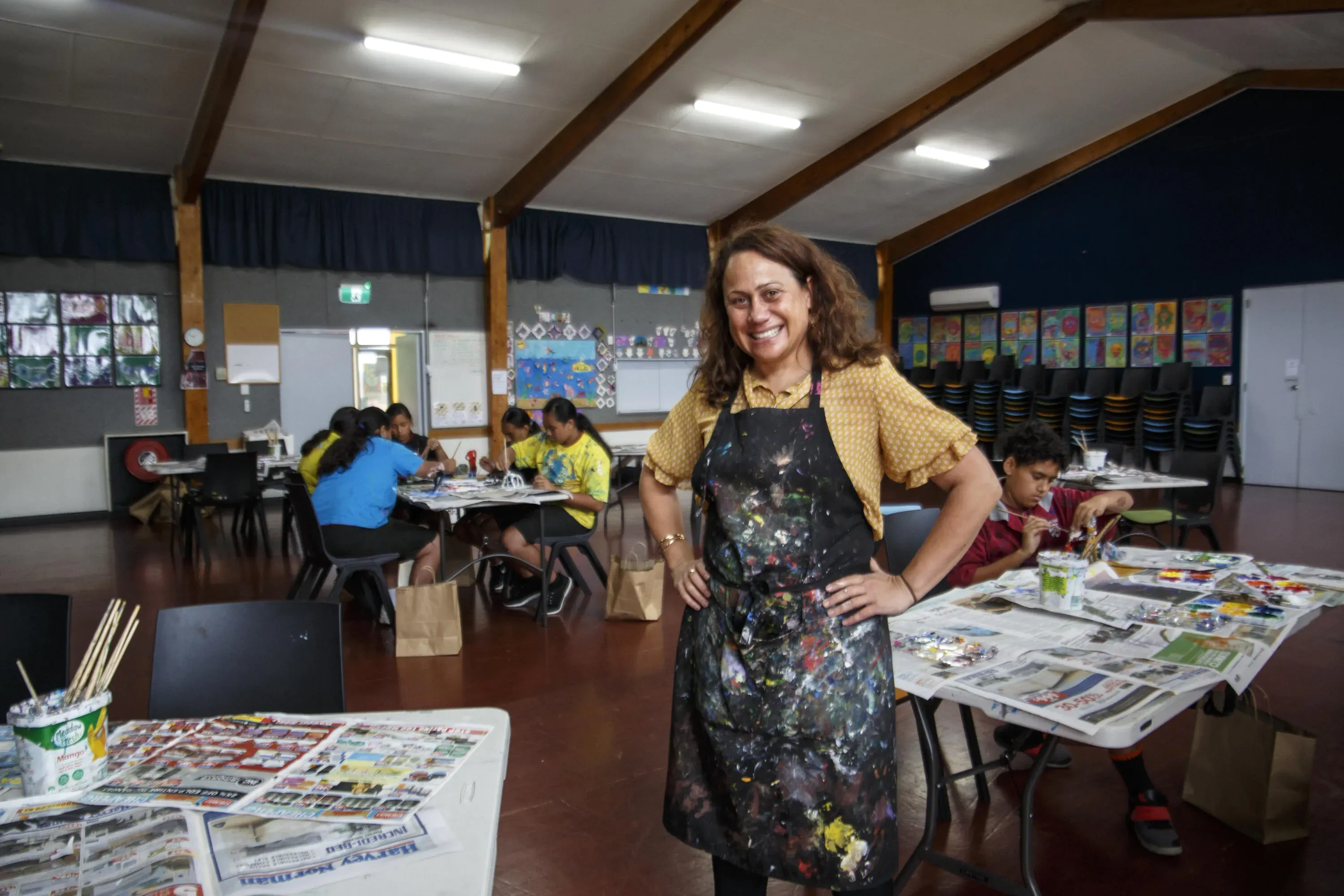Optimistic, Frustrated and Everything In Between: Big Week for Festivals & Events
Written by

The Land of the Long White Cloud has been the Land of Fog and Confusion for too long.
COVID is unquestionably tough on all of Aotearoa but by now, we’re surely done debating that the arts and live events industry is near the top of the list.
This week has seen many things move in the right direction for venues and performers - and that is to be celebrated.
As summed up by WellingtonNZ Chief Executive John Allen - whose organisation runs several of the capital’s venues - it has “created a more optimistic feeling within the industry than there has been for a while,” adding “I'd love to have the venues full, I'd love to have the artists employed, I'd love to have the city vibe back with its dynamic energy at its best.”
Many dare to dream - not just of full venues but of more consultation and communication from decision-makers.
The call to jettison the 100 person limit for entertainment venues under Level 2 (so long as seated and socially distances, of course) was universally welcomed - but still met with some frustration that it didn’t happen sooner - or that it wasn’t signalled earlier on.
While there are clearly many working parts for the Government to monitor - the lack of notice is leading to financial decisions that could needlessly put organisations in peril.
Business Events Industry Aotearoa (BEIA) chief executive Lisa Hopkins told Stuff earlier in the week “one of the things I do regret is that the initial lack of clarity meant there were some events that have already made the decision not to proceed, which is a real shame because they perhaps could have gone ahead.”
TW Events manager Adam Reinsfield added “there seems to be different guidelines for hospitality, social gatherings and event venues...There is a lot of confusing information that doesn’t seem succinct and is open to misinterpretation. We need more clarity.”
Many performing artists and their representatives approached by The Lowdown were essentially tired with the up-in-the-air nature of the past few months in particular - with the goalposts moving on so many occasions without any warning.
It’s been relentless - everything from cancelling then rebooking rehearsals, flights, accommodation and vans, dealing with promoters and regularly being the bearer of bad news to performers and crew who continue to miss out on income.
Many are hoping there is light at the end of the tunnel with Prime Minister Jacinda Ardern’s announcement of the long-discussed ‘vaccine passports’ - essentially stating that they will be required for anyone wanting to attend large scale events this summer.
Again, there is still plenty of ambiguity over how big the event needs to be, whether other live performances or cultural locations are in the same position and how it will be enforced.
It’s not hard to understand the desperate desire to get Festivals back up and running by New Year’s - promoters have often said that 7-day period is where they make 25% of their income.
As Director of the popular Rhythm and Vines in Gisborne, as well as Rhythm and Alps in Cardrona Valley, Hamish Pinkham has become the poster boy and unofficial spokesperson for Festivals this week.
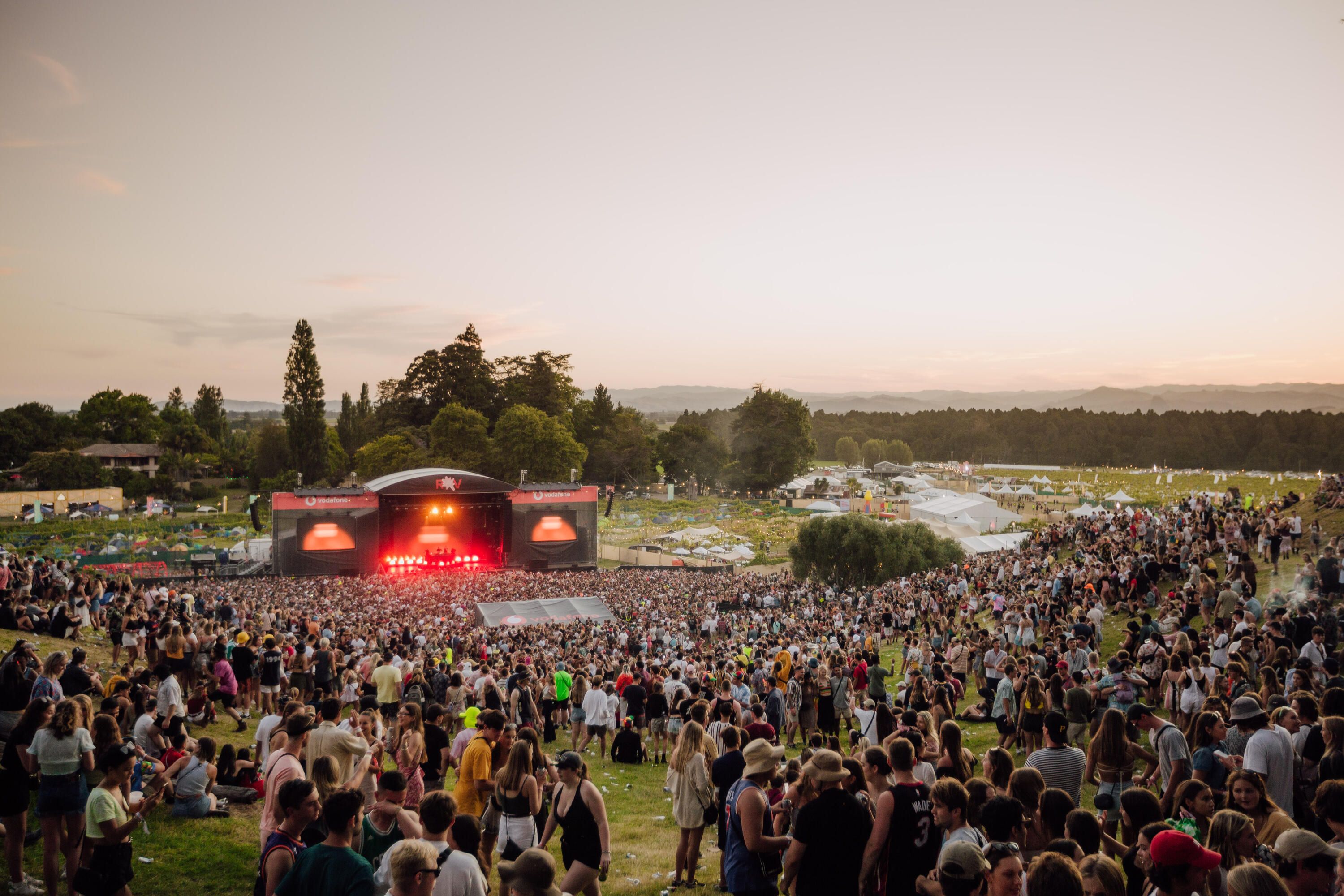
The Vines Ampitheatre. Photo: Supplied.
Pinkham told The AM Show after being in a prolonged holding pattern, “it's some clarity that we're looking for - for the wider industry.
"It's not up to us to set the public health policy, we'll be taking direction from the Government. What we learnt (on Tuesday) was no vax, no gigs. So we're now, as an industry, getting behind that," he said.
"What we took from the news is that everyone involved with these large gatherings will need to be part of the vaccination mandate - that includes staff, artists, punters and everyone involved with getting on-site.” Even that is an ongoing debate.
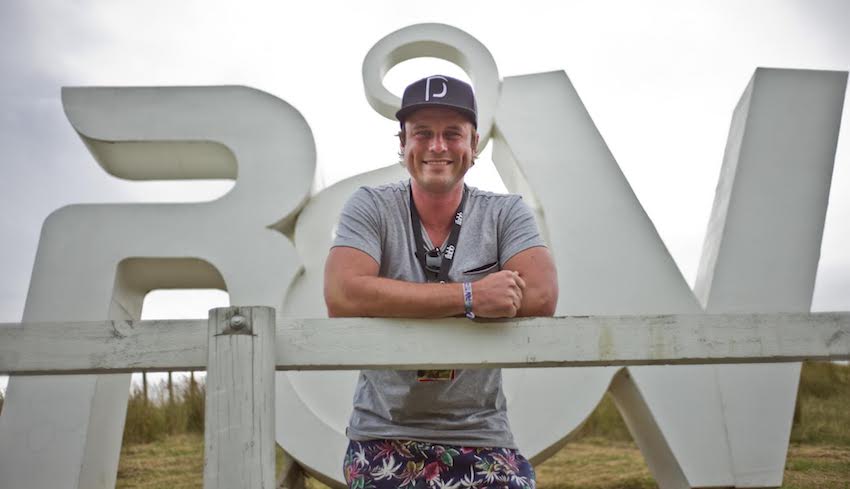
Hamish Pinkham. Photo: Supplied.
Pinkham confirmed unvaccinated ticket-holders will be refunded but it's not clear how staff and organisers will verify the vaccinated certificate belongs to the right person, with some suggesting ID checks also need to be carried out.
Getting the vaccine passports ready is one thing but the industry still needs assurances the equipment and support required to implement them will be ready in time.
"It needs to be seamless and easy… we need a quick answer," Pinkham stated.
Who absorbs the cost of verifying the certificates and if extra personnel is required also needs to be nutted out - but in the opinion of Brent Eccles, president of New Zealand Promoters' Association and a promoter himself, voiced in the NZ Herald - "it's a small price to pay for having a multi-million dollar summer festival industry."
It should be pointed out, festivals are not exactly out of the woods. With half of R&V’s attendees coming from Auckland, Pinkham confirmed that Aotearoa - the Super City included - needs to be at Alert Level 1 for the festival to proceed.
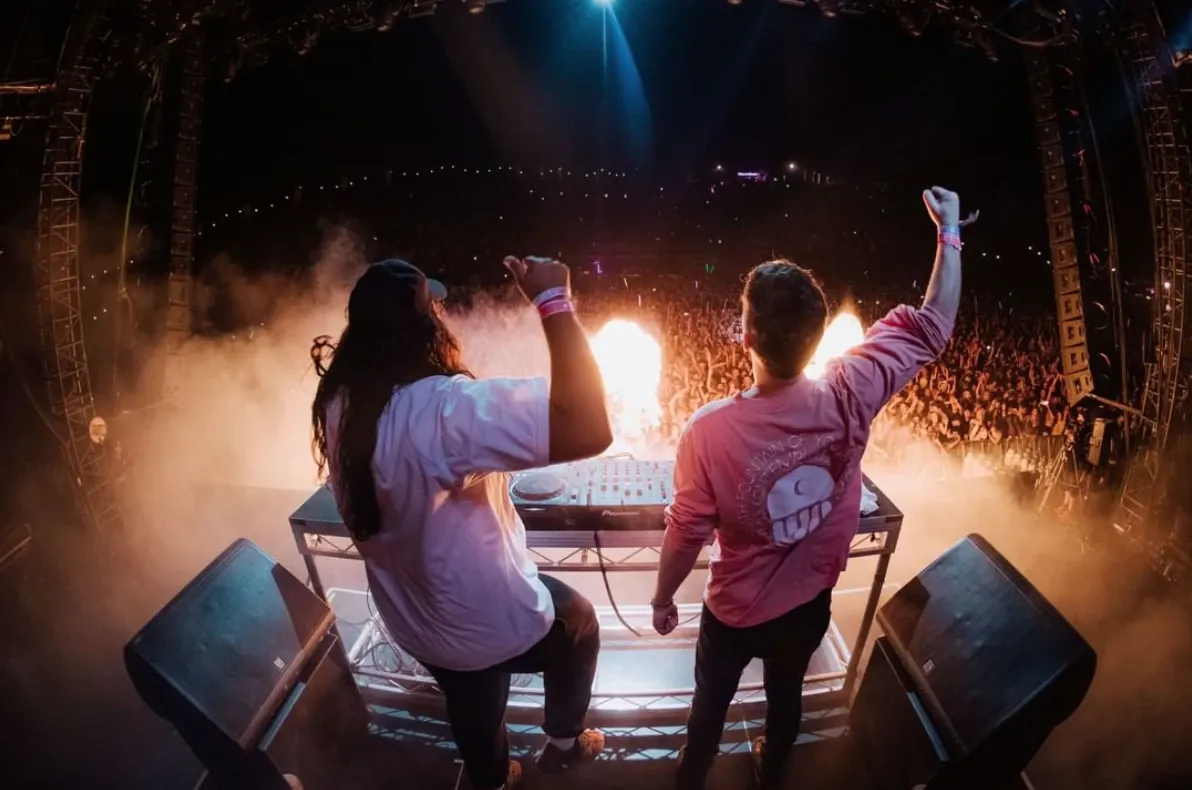
Rhythm & Vines in full flight.
Closer on the calendar, there are still plenty of events that won’t be helped by the vaccine passports - as tough calls are being made by the creative sector on a daily basis.
Word Christchurch Festival co-director Rachael King says the mid-November event would go ahead as planned, while next week’s Kerikeri Te Tai Tokerau leg of Manatū Taonga’s Te Urungi: Innovating Aotearoa event (part of the $374 million COVID Arts and Culture Recovery Programme’s Innovation Fund) has had to be rescheduled to early 2022.
There are plenty of heavy hearts right now - including at this month’s Nelson Arts Festival. On Thursday, organisers have had to cancel the popular Mask Carnivale parade and fellow community event Night Vision - along with the majority of the Pukapuka Talks literary programme, PechaKucha and Couch Stories.
They’ve salvaged some of their programme, moving a handful of the Pukapuka Talks events online and still have another six events able to proceed at Alert Level 2 - including Ruby Solly’s Pure Psychic Automatism writing workshop and Ano me He Wharepuungawerewere at Refinery Art Space.
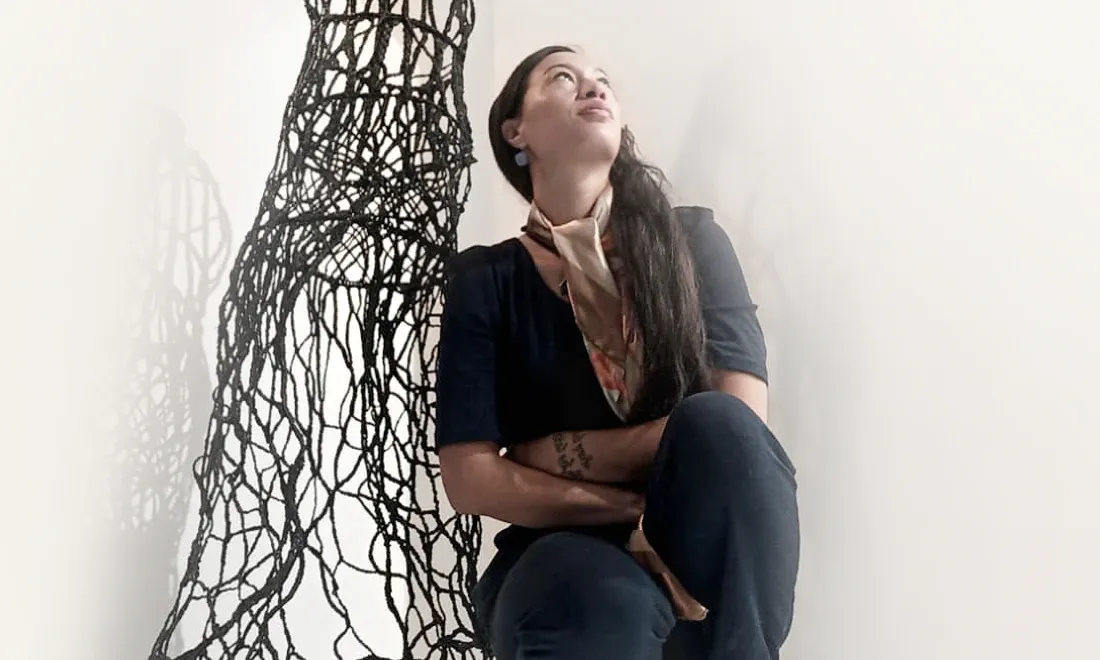
Samara Davis, part of Ano me He Wharepuungawerewere. Photo: Supplied.
While they “held on tightly to a spark of hope that we might have been able to safely gather as a community,” that spark has faded under the weight of uncertainty.
Co-Creative Director of Nelson Arts Festival Lydia Zanetti told The Lowdown “There are many factors at play in making these decisions which aren’t just about what is possible within rules, but what is the right thing to do with the knowledge that we have at the time.
“These are hugely uncertain times,” Zanetti says, “we feel that what we can offer is certainty – by making clear decisions as soon as we can and communicating in the kindest way possible.“
They add that more clarity from Government wouldn’t have changed their decision making “as this was driven by our kaupapa and from our hearts, rather than just by rules and regulations.”
Just this morning, The plug has been pulled on the Whangārei Fringe Festival. After already postponing from their original October dates, co-founders Laurel Devenie, Hayley Clark and Georgia-May
Russ have put out a statement saying “we held out hope for as long as we could, but Delta’s long tentacle has put an end to Whangārei Fringe 2021.
"We’re just really disappointed that we can’t put on a buzzy, busy festival for Northland audiences, and we’re gutted for all the artists who’ve worked so hard on their events.”
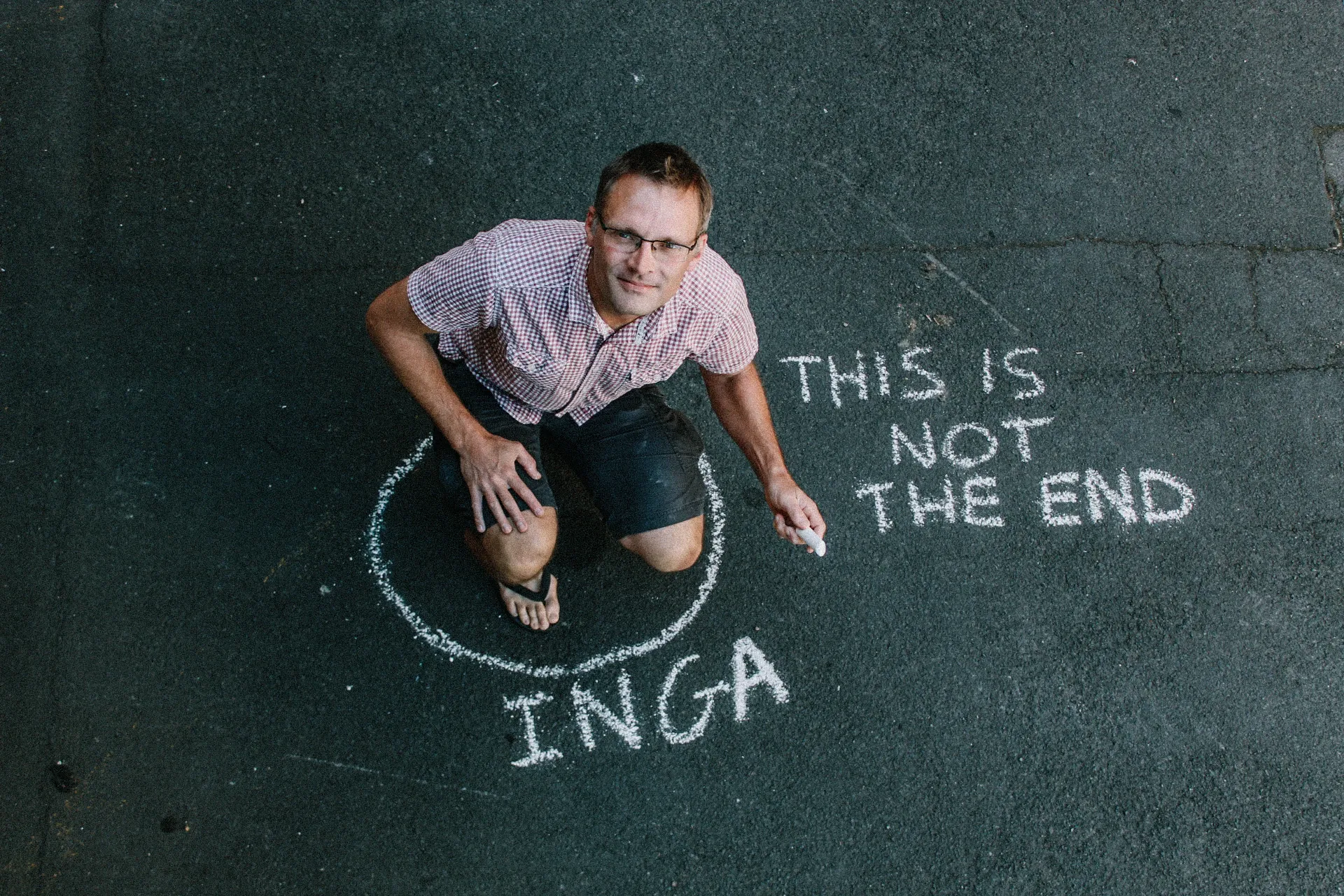
The sadly now appropriately titled show Back to Square One, which was due to be part of Whangārei Fringe 2021. Photo: Supplied.
The Auckland leg of the New Zealand International Film Festival has been cancelled, with the Trust Chair Catherine Fitzgerald stating “we have held out as long as possible but had to make this decision to be fiscally responsible” with no let up of Level 3 in sight for Tāmaki Makaurau.
The remaining 12 cities and towns will go ahead under Level 2, starting with Christchurch on 29 October.
What constitutes “opening the doors” will vary from location to location, organisation to organisation.
For example, Auckland Theatre Company won’t be back at ASB Waterfront Theatre until it makes financial sense to do so - that would be at least 300 patrons inside the 675-seat venue.
Christchurch’s Isaac Theatre Royal is able to operate in a similar capacity under the new Level 2 rules, with 600 patrons - half its capacity - instead of 100 at the start of the week, while Wellington’s Opera House can only fit 240 people instead of a maximum 1381 due to social distancing requirements.
Brighter forecast
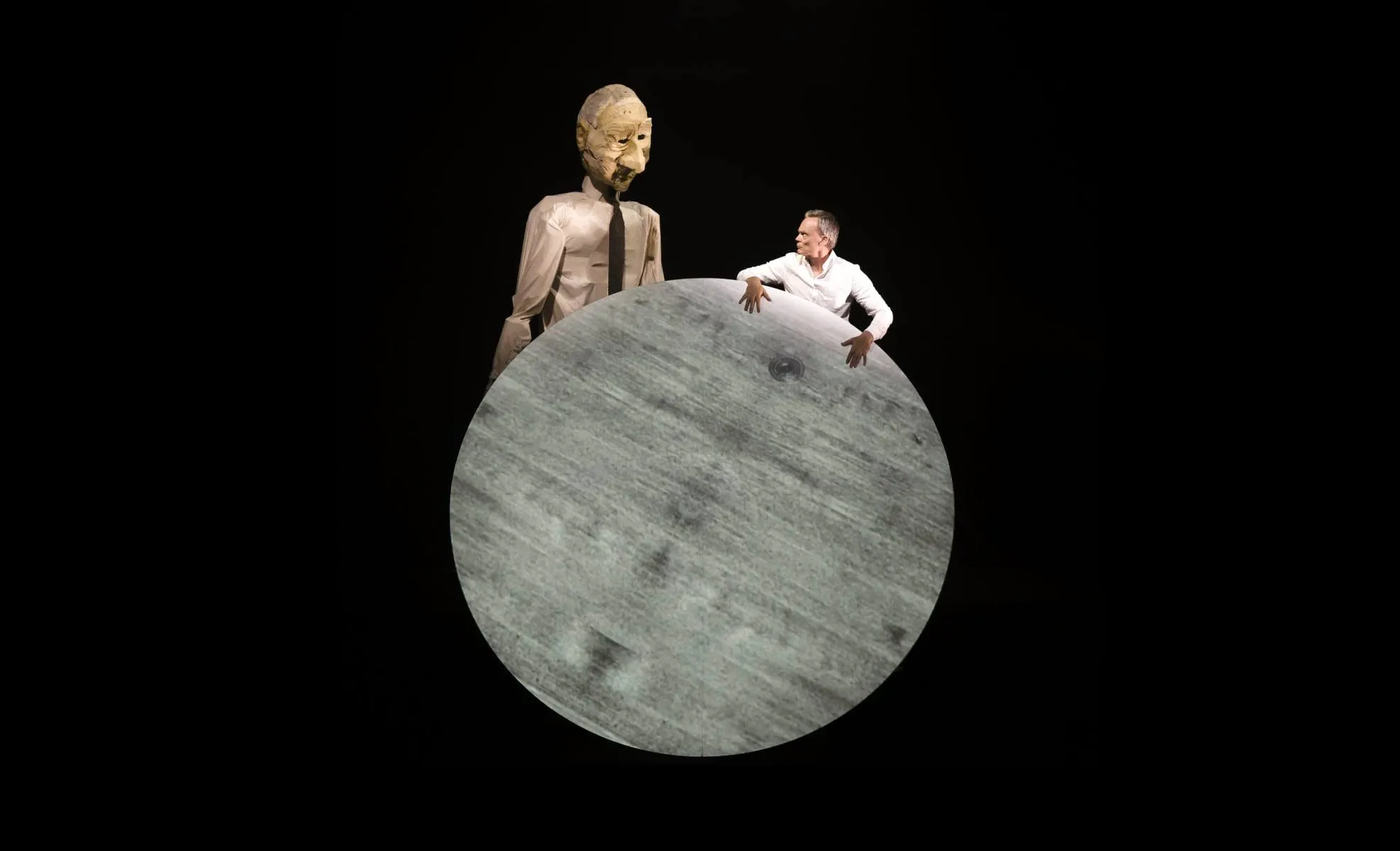
Nightsong's A Stab in the Dark. Photo: Supplied.
Given the forecast for more large scale creative events is looking a lot brighter - Auckland Arts Festival organisers have every reason to have an extra bounce in their step this week.
They’ve revealed the first trio of shows locked in for its March 2022 edition, which includes celebrated production pair Ben Crowder and Carl Bland’s Nightsong bringing its world premiere of new play A Stab in the Dark, sure to contain their trademark quirk.
Also confirmed, Sau E Siva Creatives’ Alatini - Aladdin with a South Auckland twist - and one-night-only bilingual musical offering He Kōpara featuring Whirimako Black with Allana Goldsmith, Leon Wharekura, and Dixon Nacey.
More events are likely to be drip-fed over the next few weeks before the full programme’s announced in November.
In a charitable mood
With many organisations within the Arts and Culture sector listed as charities, the 2021 New Zealand Cause Report makes for interesting reading.
Four years since its last release, the body of research from JBWere Philanthropic Services has been written and published in the context of the country’s battle with the COVID, with highly regarded arts administrator and advisor Anne Rodda the Contributing Editor to the detailed report.
The data shows COVID’s impact can’t be underestimated. In the first six months of the pandemic, 70% of the arts sector organisations reported a drop in revenue - with more than 20% of them a reduction of over half their income.
Expenses also dropped with fewer artist appearances, less travel and marketing costs - but profit margins are squeezed as they didn’t fall at the same rate.
One of the report’s co-authors John Morrow told The Lowdown “I think we all watched, with deep admiration, how some of the arts and culture sector were able to quickly move their activities online – to keep us entertained and inspired through our lockdowns.
“We were reminded that every book/poem we read, every movie we watched, every music piece we heard, and outdoor installation/performance we walked past was created by an artist, so as painful as COVID has been on the sector, I’d like to think its value has been better recognised”.
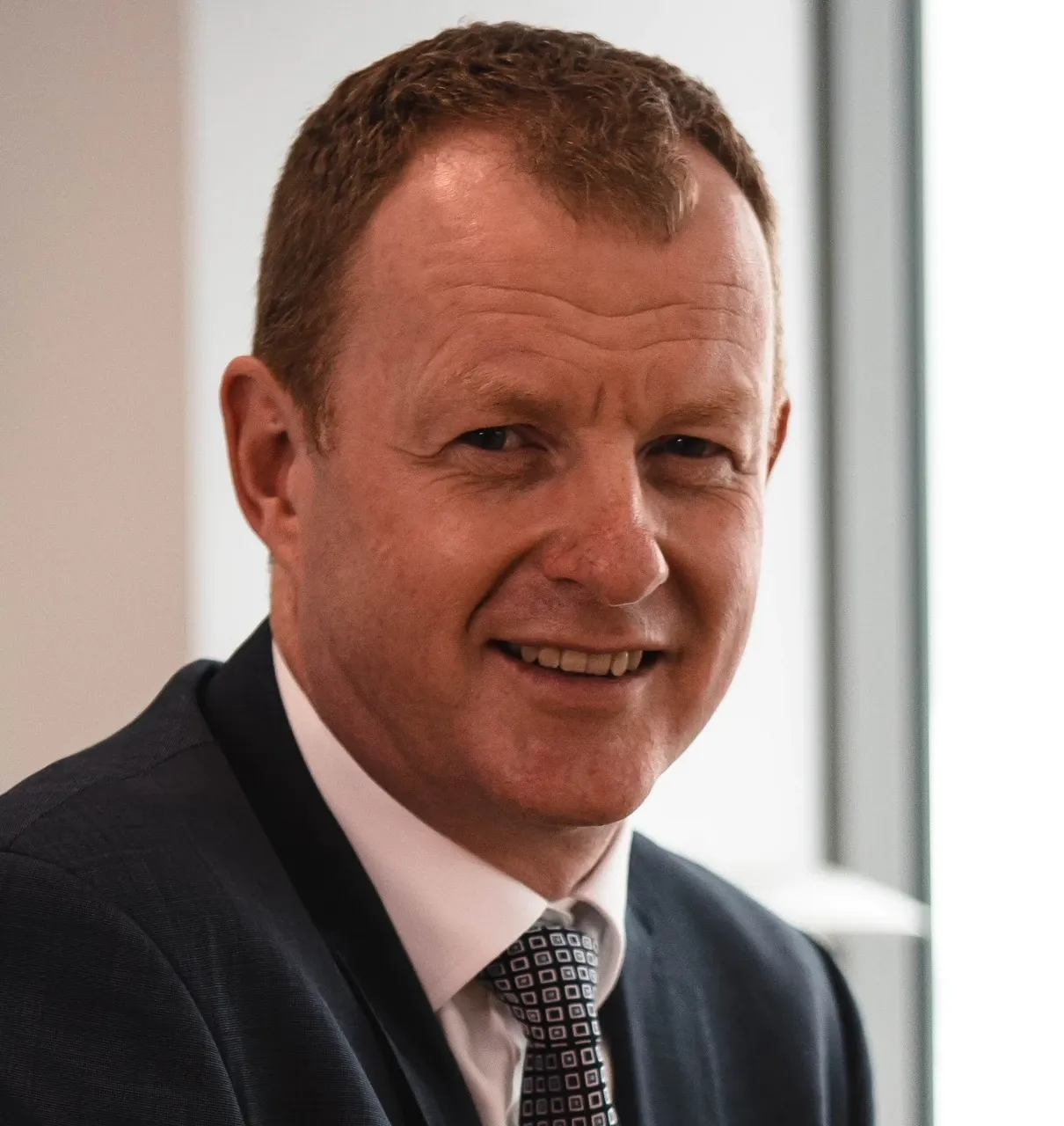
John Morrow. Photo: Supplied.
We’re about to get stat heavy, so buckle up.
Art and Culture was ranked 8th out of the 19 sub-sectors for income - about $574 million annually - 35% of which was made up of philanthropy, which is double that of other sectors.
For every contracted staff member, organisations rely on three volunteers, with costs for employees accounted for about 12% of all outgoings. All up, 73% of the 2,274 registered charities in the sector relied solely on the mahi of volunteers.
They also delivered a healthy annual surplus of 10%, thanks largely to collections and a strong balance sheet.
The top 10 organisations were responsible for more than 80% of the total income and assets, while 31% of charities had an income less than $10,000.
There’s plenty to digest - a link to the full findings can be found here. Hopefully, the information allows for organisations to give themselves a check-up and provide an extra tool in the kete when lobbying government, funders and donors.
Top TBI topics
They're not the only issues in the arts being confronted this week.
If you haven't already - it's worth checking out one of the country's most vocal arts educators Dagmar Dyck's passionate opinion piece regarding the loss of art subjects in the NCEA list and the coal face description of what's going on in our schools.
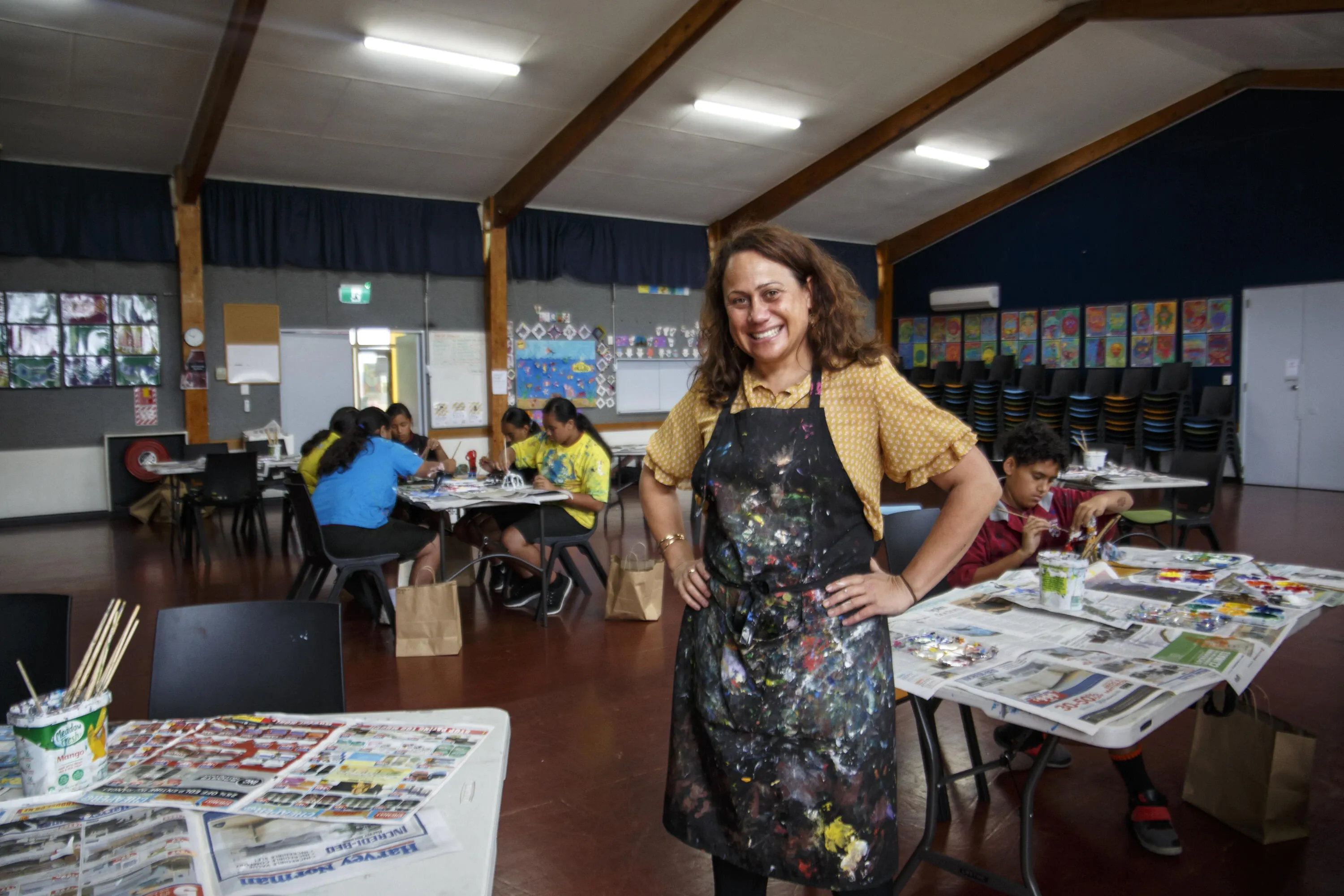
Dagmar Dyck at Sylvia Park School. Photo: Pati Tyrell.
Dyck affirms it's something the whole arts community needs to take an active role in and be accountable for. "Speaking to my ex-students, I always ask if they have taken arts at high school. Sadly I can count on one hand those that have. For the others, they tell me how boring art is as a subject. Don’t shoot the messenger."
And as if it wasn't tricky enough protecting your copyright as an artist, leading arts writer Andrew Wood has looked deep into an uneasy and often messy issue - how your ex could get more than just half the house in a divorce - but rights to your creative work as well.
Comings and goings
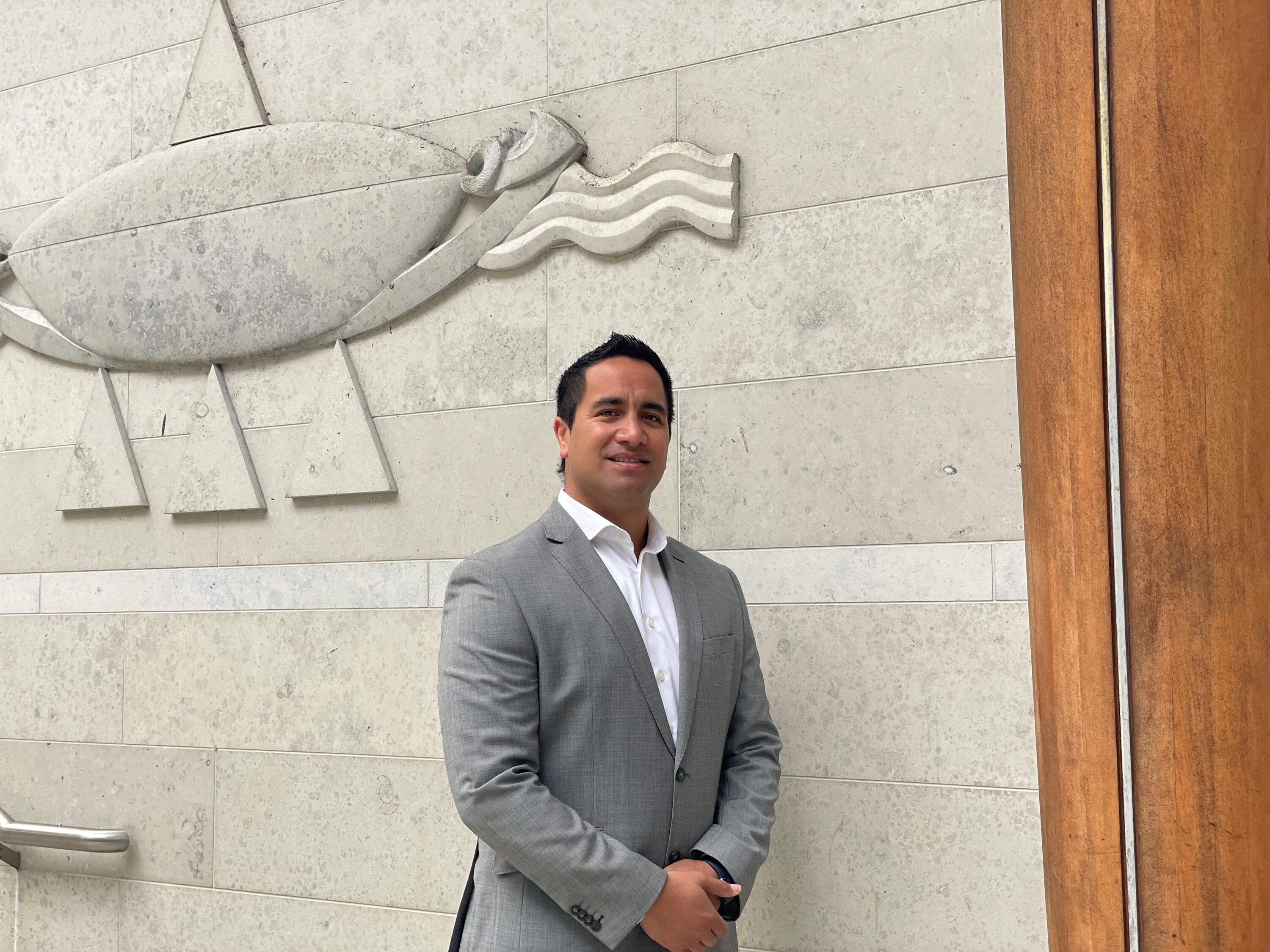
Te Arepa Morehu. Photo: Supplied.
Another Ngāti Whātua community leader has taken on a senior role at Auckland Art Gallery.
Te Arepa Morehu has been announced as Toi o Tāmaki’s inaugural Head of Kaupapa Māori, just months after Tom Irvine’s appointment as Deputy Director.
Helen Te Hira, Auckland Unlimited Director of Māori Outcomes describes the role as coming “at a time of deep reflection and continued debate about the legacy and future role of arts institutions in their relationship to Kaupapa Toi Māori. Te Arepa brings an Ahi Kā perspective, which will enrich the organisation and its contemporary identity.”
Among Morehu’s first priorities at the Gallery will be the recruitment of a new Curator, Māori Art - a role that’s been vacant since Nigel Borell’s high-profile exit at the start of the year. Borell’s been busy since his departure, the Arts Laureate’s latest project in partnership with Tautai Gallery Oh My Ocean opens at the end of the month.
Keen to leave their mark too are Rob and Cilla Ruha (Te Whanau-a-Apanui, Ngāti Porou), revealed as joint Music Directors for next month's APRA Silver Scroll Awards, responsible for all the performances throughout the ceremony.
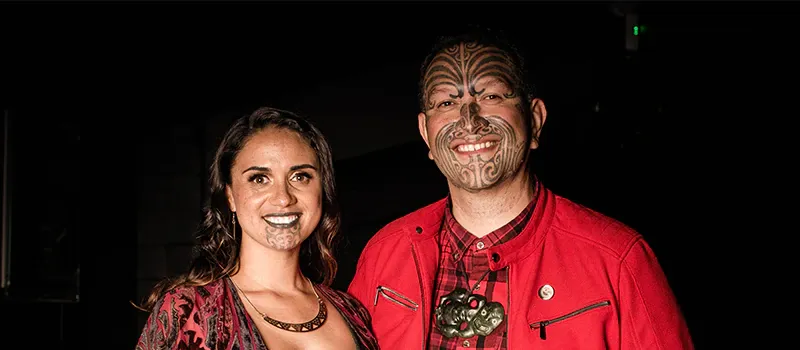
Cilla and Rob Ruha. Photo: Supplied.
Rob is a former Maioha Award winner as well as a previous judge - and one of the most respected te reo Māori figures in the music industry - with his new album Preservation of Scenery dropping today. Cilla is an equally powerful force in the creative community as a manager and mentor to artists like Teeks, Ka Hao, and Kaaterama.
Given the level of creativity annually on display with the live performances and tribute renditions from fellow Aotearoa musicians of the Silver Scroll finalists, the pair’s vision will be one to watch out for.

Charlie Unwin. Photo: Supplied.
And Charlie Unwin’s been named as the Executive Director of the Festival of Colour and Aspiring Conversations, a new position that replaces the General Manager role previously held by Laura Williamson.
With more than a quarter of a century working in the performing arts, it’s a homecoming for the Wānaka-raised Unwin, who also holds on to his roles as Director of the Dunedin Arts Festival and the Chair of The Performing Arts Network Of New Zealand (PANNZ).
Forstering the future
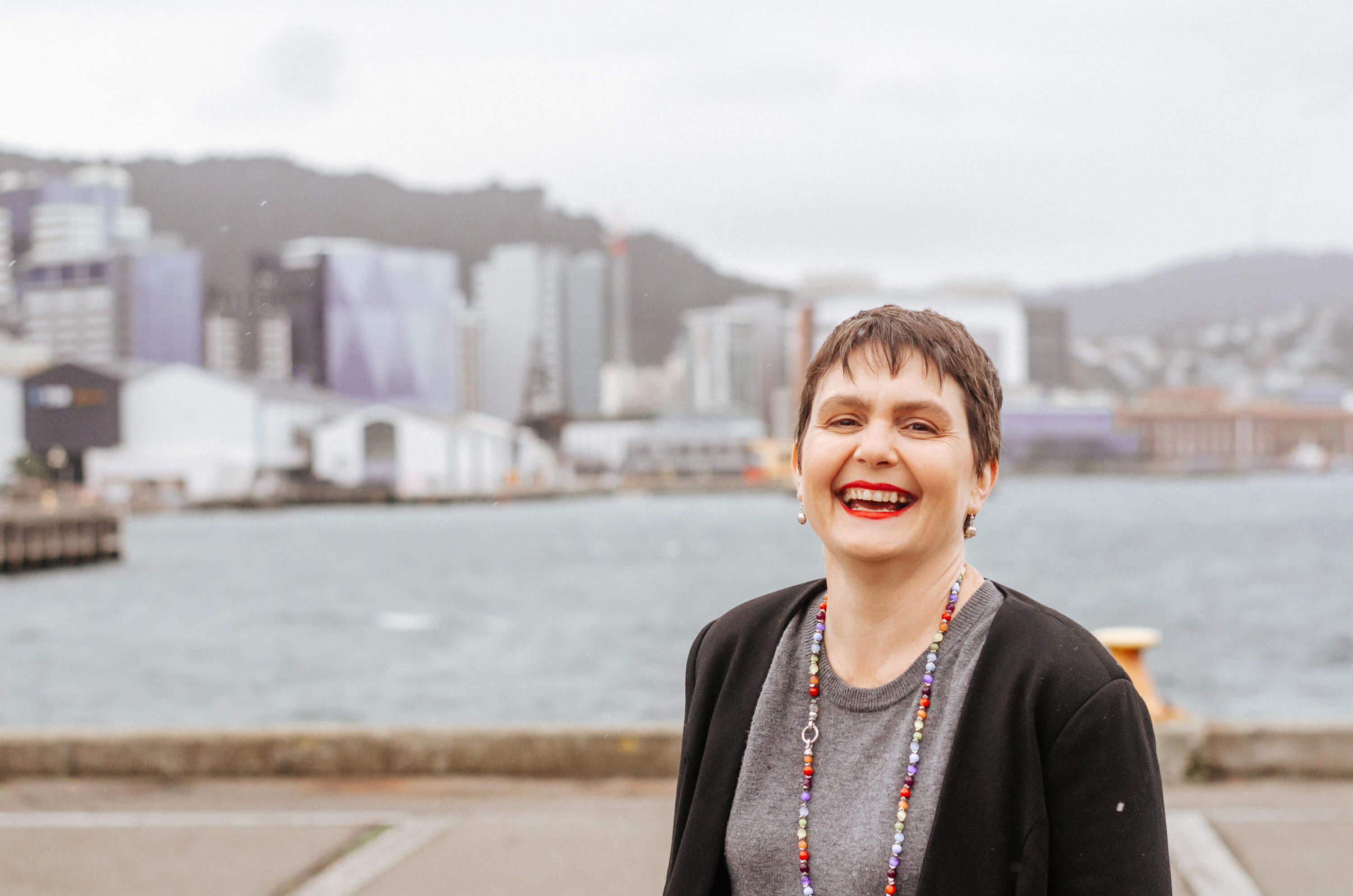
Sarah Forster. Photo: Supplied.
One of the country’s most consistent champions for youth literature has been recognised this week.
Wellington’s Sarah Forster is the recipient of the 2021 Storylines Betty Gilderdale Award for outstanding service to children’s and young adults’ literature and reading.
Forster is responsible for establishing excellent online resource The Sapling as founding editor of the website dedicated to books aimed for young people. The long time advocate and volunteer has also held positions with the New Zealand Book Council (now Read New Zealand), Booksellers New Zealand and Creative New Zealand as a peer assessor for their literature arts funding programmes.
